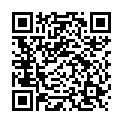|
|
|
| Module code: E1610 |
|
|
4V (4 hours per week) |
|
5 |
| Semester: 6 |
| Mandatory course: yes |
Language of instruction:
German |
Assessment:
Written exam
[updated 14.07.2016]
|
E1610 (P211-0170) Electrical Engineering, Bachelor, ASPO 01.10.2012
, semester 6, mandatory course
|
60 class hours (= 45 clock hours) over a 15-week period.
The total student study time is 150 hours (equivalent to 5 ECTS credits).
There are therefore 105 hours available for class preparation and follow-up work and exam preparation.
|
Recommended prerequisites (modules):
E1305
E1501
[updated 14.07.2016]
|
Recommended as prerequisite for:
|
Module coordinator:
Prof. Dr.-Ing. Jürgen Schäfer |
Lecturer:
Prof. Dr.-Ing. Jürgen Schäfer
[updated 14.07.2016]
|
Learning outcomes:
Knowledge: Construction of components of embedded systems, system-on-chip, peculiarities when programming embedded systems (cross compiler, programming, debugging; interfaces GPIO, ADC, DAC, SPI, I2C, USART; interrupts and exceptions)
Skills: Handling development tools for embedded systems, working with the documentation of a modern RISC-microcontroller and configuring of GPIOs, UASRT-interfaces and timers, creating of interrupt programs, error search in embedded systems.
Competence: programming of microcontroller-based embedded systems with limited resources under real time conditions without operating system. Implementing basic hardware abstractions and the realization of basic controllers by using finite-state machines. Recognition of possible race-conditions.
[updated 14.07.2016]
|
Module content:
Content:
1. Tools for software building
- development environmentμVison (MDK-ARM)
– Project settings
– Compiler, Linker -- Debugging
-Important support programs
-- TortoiseSVN -- Doxygen
2. Important design patterns
3. Concurrency
- Problems
- Possible solutions
4. Abstraction of the hardware (HAL)
5. Applications in practice
- IO-Pins: Input and output
- Abstract implementation of a communication interface by using the example of an interface for receiving and sending data via an asynchronous (USART) and synchronous (SPI or I2C) serial interface
- Using callback-functions in connection with interrupts (Inversion of Control)
- Time control via timer, PWM generation and analysis
[updated 14.07.2016]
|
Teaching methods/Media:
PC, blackboard, projector
[updated 14.07.2016]
|
Recommended or required reading:
Jospeh Yiu: "The Definite Guide to the ARM Cortex-M3", Newnes Bruce P. Douglass: "Design Patterns for Embeddd Systems in C", Newnes Daniel W. Lewis: "Fundamentals of Embedded Software with the ARM Cortex-M3", Pearson International Ed. Thomas Eißenlöffel: "Embedded-Software entwickeln", dpunkt.verlag J. A. Langbridge: Professional Embedded ARM Development, John Wiley & Sons, 2014 W. Hohl: "ARM Assembly Language - Fundamentals and Techniques", CRC Press, 2009 ST: "RM0008 Reference Manual", www.st.com ARM: "ARM Compiler toolchain, Compiler Reference", http://infocenter.arm.com/help ARM: "ARM Compiler toolchain, Usiong the Compiler", http://infocenter.arm.com/help
[updated 14.07.2016]
|


